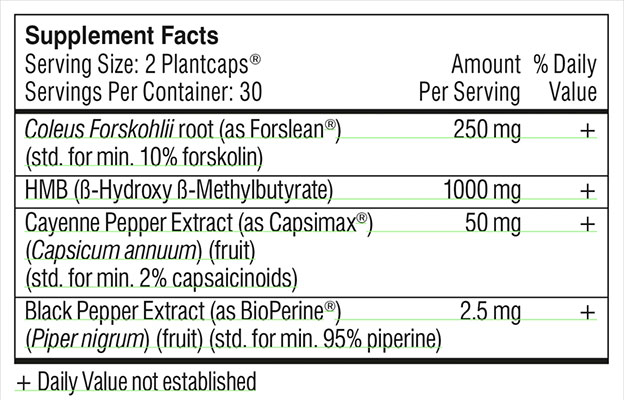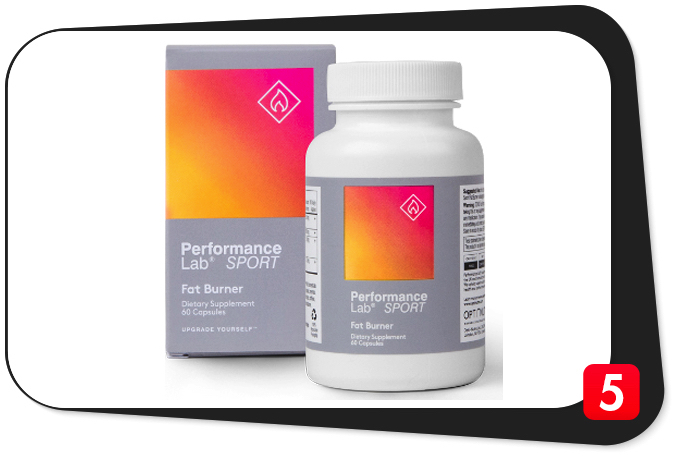
In our natural, pre-society state, intermittent fasting wasn’t an adoptable health routine. It was a way of life. In fact, it was the way of life, the only way to live.
Arguably, civilization started when we have more food than we need right now. Civilization begins with the storage of food for later, as food cultivating techniques and technology improve, allowing the hunter-gatherer to become a well-nourished farmer.
Except the problem we’re facing now is that food is EVERYWHERE.
We can’t get away from food. And many chain restaurants know this and have learned that certain foods we especially can’t get away from – because our uncivilized hunter-gatherer bodies crave these foods really bad…
…sugary, salty, fatty foods that provide easy-to-store calories, which is a bonus in the wild, as calories are hard to come by, but not in the city, where you could literally order a food delivery guy to deliver you a stick of butter for you to eat while sitting on your couch …for example.
Generation-to-generation evolution simply can’t keep up with our increasingly well-stocked environments. And so that’s why the concept of “dieting” has become a legitimate discipline and area of research.
Except many of these diets are totally bogus and prey on our base instincts rather than actually help us. We know what we shouldn’t eat, it’s how we should be eating what we eat in this food-saturated environment that’s ailing us.
Which is why Intermittent Fasting (IF), an eating routine that emphasizes simply taking a break from eating rather than dictating what you should eat, is such a positive movement in the confusing world of nutritional health.
Table of Contents
Hack Your Brain and Body with Intermittent Fasting
Intermittent fasting is not a diet, not in the traditional “fad diet” sense of the word. It is a “trend,” in-so-much that it’s currently trending as a popular concept. But it’s not a manufactured trend like one that’s being promoted by some creepy, marketing influence.
Rather intermittent fasting is an eating schedule. Intermittent fasting is backed by a wealth of promising research and data that determines when you eat rather than what you.
The definition is in the title. Intermittent fasting involves intermittently fasting for a long enough time. To allow the body to essentially “reset” itself by prioritizing the bio-pathways that are otherwise neglected while constantly digesting food.
Simply put, IF splits into two states:
- Fasting State: for a substantial amount of time, the intermittent faster abstains from eating, yet may still drink water and coffee and consume certain supplements.
- Feeding State: following the fast state, the intermittent faster eats (or feasts!), consuming the day’s calorie goal within this time.
There is no strict schedule that an intermittent faster must abide by here.
Intermittent fasting may involve a daily fast of 16 hours. Usually partially occurring overnight (because that’s easiest anyways), or an alternating day fast (fast one day, feed the next, repeat). Or a weekly fast, in which a 24-hour fast occurs once every week.
Work and workout schedules tend to determine an IF schedule, as well as social obligations, which may randomly disrupt, or threaten to disrupt, an IF schedule.
IF is a matter of scheduling; although IF may work as a CR (calorie restriction) strategy for the obvious reason that eating for a shorter period of time during the day is incredibly conducive to eating less, if one so desired.
Either way, the primary purposes of IF is to allow the body a much-needed break from eating. To allow us better control over the health of our bodies.
And to, in a way, “hack” our bodies’ hormonal and metabolic pathways to operate at a more efficient, healthier level. IF is an easy eating strategy to adopt, and it’s a smart move, whether your health interests are nootropic, athletic, or (better yet) holistic.
The Health Benefits of Intermittent Fasting
How much time do you have? Because I could go on and on about the finely detailed health benefits of intermittent fasting, which include a huge number of hormonal pathways.
I’ll keep it brief by listing the main benefits of IF:
- Anabolic muscle growth: this sounds like it’d be the opposite but actually fasting helps increase muscle gains and muscular resistance to stress for a better muscle building metabolism.
- Catabolic fat loss: increased fat breakdown activity (via lipolysis and ketogenesis), reduced fat cell formation activity, as the body prioritizes stored fat as a source of energy.
- Increased brain growth: while in the fasted state, the brain promotes neurotrophic (neuron growing) factors and synaptic plasticity for better brain repair and cell-to-cell communication.
- Increased insulin sensitivity: the problem with constantly eating is constantly engaging the insulin pathway; giving this a break allows for the body to resensitize insulin receptors for more efficient energy uptake and use.
- Healthier heart and cardio: a key benefit of IF is reduced blood pressure and increased parasympathetic activity for a calmer, more stable cardiovascular system across the body.
- Saves money: somehow condensing your daily calorie count into fewer meals results in spending much less money and in unexpected ways, such as, e.g., less time driving (gas money), fewer meal tips, fewer work breaks, etc.
- Much more effective (and enjoyable) than dieting: IF is not about what you eat but when you eat, allowing you to eat what you enjoy eating without being miserable and constantly feeling like you’re on the verge of relapse.
What’s particularly great about intermittent fasting is that it’s not a fad diet linked to a specific book or meal or program that’s monetized by some fake health guru bad actor.
Intermittent fasting is a legitimate, well-researched eating routine that’s increasingly recommended by health experts (so long as it’s done correctly) and that makes evolutionary sense.
Our hunter-gathering bodies simply aren’t primed for constant eating…IF addresses this.

Optimize IF Results with a Fat Burner Supplement
As a health routine, IF may do a lot of good even without exercise.
Yet, with exercise, intermittent fasting does wonders for the metabolism, anabolic muscle gains, fat loss, body composition, and so on. It’s truly wild how something as simple as IF can significantly impact one’s training results.
Ideally, you’ll want to workout in a fasted state. If you can time it so that your workout occurs at the transition state between fast and feed, all’s the better. This will allow you to earn the fat loss benefits of fasted training. While following up exercise with all of the necessary nutritional replenishment.
Fasted training can be difficult. Our impulse is to eat something to boost our “energy” prior to working out. Not to work out on an empty stomach.
And while the fat loss benefits of fasted training are great, the muscle gain aspect is harder to pin…
…This is where Performance Lab SPORT Fat Burner comes into play.
One-part fat burner, another part ergogenic. Performance Lab SPORT Fat Burner helps the body prioritize fat as a fuel source for muscular energy, helping athletes and bodybuilders maintain lean muscle mass at the cost of fat mass and not muscle mass. It also targets the hormonal pathways addressed by intermittent fasting, potentially improving one’s IF results.
Intermittent fasting is a discipline. Exercise is a discipline. Combined, they’re especially difficult, but all the more cross-beneficial. And a great fat burner supplement completes the trifecta.
- You can only buy Performance Lab Fat Burner from their official website: www.PerformanceLab.com
Performance Lab SPORT Fat Burner Ingredients
Performance Lab’s line of supplements tends to keep the formulas simple by supplying only a few of the best ingredients per formula. I like this design strategy, as it allows each ingredient room enough to breathe. Nothing worse than a stack that boasts having a lot of powerful, effective ingredients. Yet under-doses all of them to fit them in those tiny capsules.
With that in mind, here are the four properly dosed ingredients used by this fat burner stack:
Coleus Forskohlii root (as Forslean®), 250mg
A staple of Ayurvedic health medicine, Coleus forskohlii is also a hugely popular ingredient in fat burner supplements. For its well-documented effects on the production of cyclic adenosine monophosphate (cAMP).
This compound may help promote a leaner body composition by:
- Optimizing metabolic regulatory hormones to promote thermogenesis and anabolic muscle growth, playing a role in thyroid hormone and testosterone activity as well;
- Stimulating lipase activity to catalyze fat breakdown of triglycerides, the building block units of body fat.
Often times the best way to lose weight (fat) is to gain weight (muscle), and Coleus forskohlii helps on that front by simultaneously promoting an anabolic muscle building metabolism and a catabolic fat loss thermogenic environment.
The Forslean® extract used here is particularly great for supplying a standardized concentration of Coleus’ bio-active ingredient forskolin at a minimum 10%, which has been found to be safe and well-tolerated in several clinical studies.
HMB (β-Hydroxy β-Methylbutyrate), 1000mg
The main attraction here at a 1000mg dosage. HMB is a metabolite of leucine, a branched-chain amino acid (BCAA); favored by lean muscle building bodybuilders, especially bodybuilders engaged in an intermittent fasting diet.
Taking HMB helps optimize fasted training results by:
- Protecting against enzymes that deteriorate muscle mass while in a fasted state;
- Maximizing oxygen consumption in muscle tissue to promote exercise endurance and performance;
- Increasing protein synthesis to promote muscle growth;
- Prioritizing fat as an energy fuel rather than muscle tissue.
It’s an interesting compound that doubles as a fat loss supplement and an ergogenic muscle performance enhancer. No doubt that while the benefits of training on an intermittent fasting diet are enticing, actually training during the fasted state kind totally suck.
HMB makes it suck less, allowing you to enjoy the benefits without feeling like you’re exercising on totally malnourished, hungry muscles.
Cayenne Pepper Extract (as Capsimax®), 50mg
I love cayenne pepper. This is probably the placebo effect talking… but whenever I add cayenne to my diet, I enjoy imagining this spice entering my fat cells and melting them with their fiery hot spiciness. Although I know that’s not exactly how cayenne’s fat burning activities work.
Instead, cayenne’s active ingredients, the capsaicinoids, work by activating the release of catecholamine hormones (norepinephrine, epinephrine) from the adrenals. Which go on to stimulate energy expenditure and lipase activity, the latter of which increases fat breakdown, fat mobilization, and fat oxidation.
Through the catecholaminergic pathway, cayenne also seems to possess slightly stimulatory effects, namely on heart rate and blood pressure, which may have a positive effect on exercise and energy dispersal throughout the body.
Black Pepper Extract (as BioPerine®), 2.5mg
Always a good idea to add a little pepper to your formula. In fact, some ingredients (e.g., turmeric) outright fail to work without the addition of black pepper; the pepper’s spicy bio-active constituent, piperine, helps many nutrients absorb into the body.
It’s essentially a nutrient absorption enhancer that increases the total bio-availability of this formula. And it does this in such small dosages (2.5mg here), which is purdy neat.
As a fat burner, piperine qualifies as a thermonutrient, a compound that assists with fat loss and weight management by:
- Increasing thermogenesis and energy expenditure;
- Inhibiting the formation of new fat cells (i.e., adipogenesis).
The combination of thermogenic energy expenditure and optimized nutrient absorption creates an internal bodily environment that more efficiently translates food into fuel instead of fat.
Other Ingredients: Vegan Plantcaps® Capsules
It’s cool to see supplements use BioPerine® black pepper extract to enhance the potency and bio-availability of their formulas. Except many of these same formulas also counter the benefits of their nutrient absorption enhancers. By encasing the formula in shoddy, junky capsules coated in colorants, dyes, magnesium stearate, and a bunch of other obscure, sci-fi sounding compounds.
Performance Lab SPORT Fat Burner does us a solid here. By leaving all the unnecessary additives completely out of their manufacturing process, instead encasing their formula with clean, transparent, vegan Plantcaps® capsules.
Constructed from fermented tapioca (pullulan). These Plantcaps® are prebiotic-infused and nature-identical, registering as a natural nutrient in the body. So as not to throw the whole digestive system off with an unnatural reaction to unnatural ingredients.
- To buy Performance Lab Fat Burner, visit their official website: www.PerformanceLab.com
- To learn more, read our full review: https://best5supplements.com/fat-burners/performance-lab-sport-fat-burner-review/
F.A.Q about Intermittent Fasting and Fat Burner Supplements
If we could eat certain foods during the feast state to improve intermittent fasting results (or to at least rid ourselves of the cravings), that would be awesome. But also wildly counterproductive.
For the veteran intermittent faster, this isn’t much a problem.
As the cravings and hunger become a part of the routine, essentially becoming background noise, if noticed at all. But, even so, it can be difficult to keep a strong enough mind-body connection required for high-intensity training while the exercising body’s signaling to the brain, “Hey, I’m starving!!”
Supplements help on this end, but do they disrupt the IF benefits? Are supplements *cheating* the IF game? Here are a few frequently asked questions that address these concerns:
Do fat burner supplements disrupt IF benefits?
In other words, does the body register supplements as food, thereby impairing the metabolic and hormonal benefits of intermittent fasting?
This is a good question and a common one. And I’m sure for many supplements, especially powder supplements packed with calorie-heavy compounds, it may be true that taking a supplement disrupts IF.
However, this isn’t the case with Performance Lab SPORT Fat Burner.
What I like about Performance Lab SPORT Fat Burner is this; not only do the ingredients actually service the hormonal and metabolic pathways we’re targeting with an IF routine. But the formula itself is so clean and additive-free.
I’m confident these pills aren’t sneaking in any compounds that might throw the whole metabolic system out of whack.
This is a huge advantage of Performance Lab supplements to the understandably cautious IF exerciser.
Should I take the fat burner during the fast or feast state?
Ideally, a fat burner supplement like Performance Lab SPORT Fat Burner should be taken during the fast period prior to fasted training. For all of the health and performance benefits of fasted training, there are also a few downsides to fasted training as earlier mentioned.
Such as, e.g., low muscle fatigue and energy. Many of the ingredients in this stack help mitigate these issues. Allowing you to get the most out of your fasted training.
Which isn’t to say that it’d be bad to take a fat burner during the feast state. Especially immediately prior to the feast state to utilize those nutrient absorption benefits. But it’s best to take the fat burner during the fast state as part of your workout supplement regimen.
How close to exercise should I take a fat burner supplement?
Performance Lab SPORT Fat Burner has simple directions. “For best results take 2-4 capsules 15 minutes prior to training.”
If we’re going by these directions, it’s best to take a serving right before (roughly 15 minutes prior) to working out.
Can I stack a fat burner with other supplements without breaking the fast?
Speaking of workout supplement regimen. There are other supplements you can take that may further enhance your exercise performance without breaking the fast. A few that stack well with Performance Lab SPORT Fat Burner are:
- Performance Lab SPORT Pre-Workout: a creatine-powered, citrulline-driven pre-workout stack that supplies cellular ATP energy and promotes N.O. activity for increased muscle pumping circulation. More on Performance Lab SPORT Pre-Workout.
- Performance Lab Energy: unlike other energy boosters, which rely on stimulants (oft-times risky stimulants), this energy stack optimizes natural mitochondrial energy production, improving ATP activity across the body. More on Performance Lab Energy.
- Performance Lab SPORT BCAA: branched-chain amino acids are great for replenishing muscle endurance, reducing soreness, and improving muscle growth and recovery. More on Performance Lab SPORT BCAA.
Except here’s the thing with the BCAA supplement. While a BCAA supplement could be used as a pre-, intra-, and post-workout supplement, you’ll want to take a BCAA either intra- or post-workout (not pre-workout) to avoid breaking your fast.
Branched-chain amino acids are the sub-units of protein and, thus, may induce feast-state hormonal activities.
Not too much activity, really. But enough that you should wait until midway through your workout or after to optimize the fat loss benefits of fasted training.
Final Thoughts
Is there a reason not to commit to an IF program? I’m sure that IF is not for everyone, especially for those with special dietary and nutritional needs. However, I think it’s safe to say that for the general public, for all humans who still live in hunter-gatherer bodies, IF isn’t only a smart move but a natural one.
No need to overthink it or overcomplicate it. IF is an easy strategy to rebalance your body and establish a more fertile metabolic environment for building lean muscle mass.
If you’d like to get more out of intermittent fasting, adding a potent, spicy, and clean fat burner supplement may go a long way. I like Performance Lab SPORT Fat Burner as a clean, green, transparent fat burner option. It’s one that amplifies, not inhibits, my IF routine.
- To buy Performance Lab Fat Burner, visit their official website: www.PerformanceLab.com
- To learn more, read our full review: https://best5supplements.com/fat-burners/performance-lab-sport-fat-burner-review/


Leave a Reply